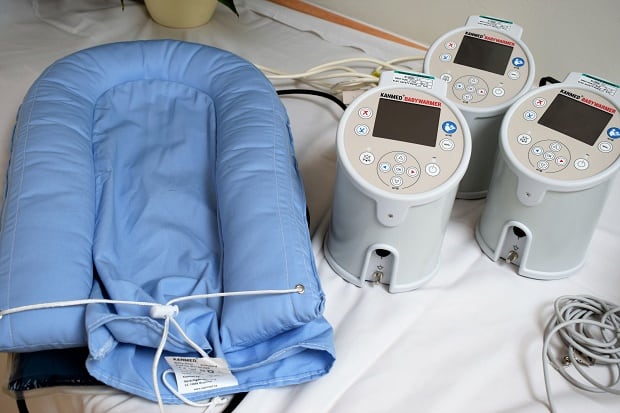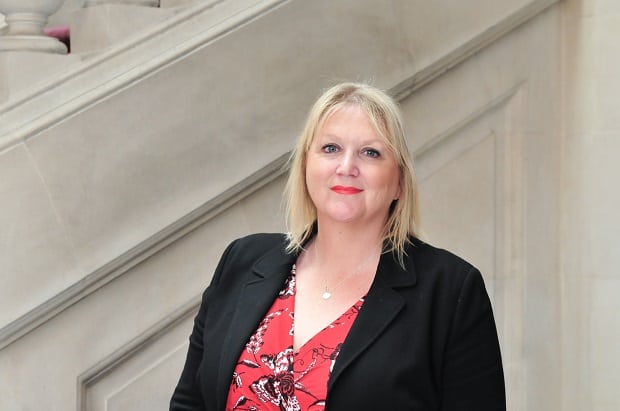
A national taskforce is to be set up to review “maternity and neonatal improvement programmes” across the UK in response to an independent investigation into maternity failings at QEQM and William Harvey Hospitals which found 45 baby deaths could have been avoided.
Minister for women’s health strategy Maria Caulfield MP, who will chair the task force, announced the measure as part of the government’s response to the inquiry carried out by Dr Bill Kirkup and his team.
NHS England and NHS Improvement commissioned Dr Bill Kirkup in 2020 to carry out an independent review into the circumstances of the maternity deaths at the East Kent Hospitals Trust sites in response to a concerning number of avoidable baby deaths.
Issues with maternity were brought into the spotlight following the death of baby Harry Richford at Margate’s QEQM Hospital in 2017 after a series of errors.
An independent report said he might have survived had there not been a delay in resuscitation at his birth that caused irreversible brain damage.
Some 200 families came forward to the Kirkup review over the preventable deaths of their babies.
The Kirkup report found that between 2009-2020, the timeframe under review, that: “those responsible for the services too often provided clinical care that was suboptimal and led to significant harm, failed to listen to the families involved, and acted in ways which made the experience of families unacceptably and distressingly poor.”
The Panel found that had care been given to the nationally recognised standards, the outcome could have been different in 97, or 48%, of the 202 cases assessed by the Panel, and the outcome could have been different in 45 of the 65 baby deaths, or 69% of these cases.
Numerous other failings were highlighted in the review.
Now Ms Caulfield has announced new measures which will also include a local forum to oversee progress at East Kent Hospitals Trust.
The task force will bring together key people from the NHS and other organisations to look at the work to improve maternity and neonatal care.
Dr Kirkup will also work with healthcare partners to help ensure teams in maternity and neonatal care across England can work together to ensure compassionate care is provided.
Included in the five recommendations is that: “ The government reconsiders bringing forward a bill placing a duty on public bodies not to deny, deflect and conceal information from families and other bodies,” and “Trusts be required to review their approach to reputation management and to ensuring there is proper representation of maternity care on their boards.”
The recommendations
- 1 The prompt establishment of a task force with appropriate membership to drive the introduction of valid maternity and neonatal outcome measures capable of differentiating signals among noise to display significant trends and outliers, for mandatory national use.
- 2i Those responsible for undergraduate, postgraduate and continuing clinical education be commissioned to report on how compassionate care can best be embedded into practice and sustained through lifelong learning.
- 2ii Relevant bodies, including royal colleges, professional regulators and employers, be commissioned to report on how the oversight and direction of clinicians can be improved, with nationally agreed standards of professional behaviour and appropriate sanctions for non-compliance.
- 3 Relevant bodies, including RCOG, RCM and the Royal College of Paediatrics and Child Health, be charged with reporting on how teamworking in maternity and neonatal care can be improved, with particular reference to establishing common purpose, objectives and training from the outset.
- 4i The government reconsiders bringing forward a bill placing a duty on public bodies not to deny, deflect and conceal information from families and other bodies.
- 4ii Trusts be required to review their approach to reputation management and to ensuring there is proper representation of maternity care on their boards.
- 4iii NHSE reconsiders its approach to poorly performing trusts, with particular reference to leadership.
- 5 That the trust:
- accepts the reality of these findings
- acknowledges in full the unnecessary harm that has been caused
- embarks on a restorative process addressing the problems identified, in partnership with families, publicly and with external input

Among those affected were Helen Gittos and Andy Hudson who said they were “treated dismissively, contemptuously and without a desire for understanding” throughout pregnancy, labour and then the tragic death of their baby Harriet.
Harriet was born on August 3, 2014, at QEQM and died just days later on August 11. Her case was one of those reviewed in a Royal College of Obstetricians and Gynaecologists review of the service in 2015. Harriet was a full-term baby and healthy but died after sustaining a brain injury during her birth.
In response to the government statement accepting the recommendations in Dr Kirkup’s report – Reading the Signals- Helen said: “I am delighted Maria Caulfield has accepted the recommendations of the report, that she will personally chair an oversight group to ensure they are implemented, and that she has enlisted Bill Kirkup’s help.
“It’s also heartening that the Department recognize the seriousness of the ongoing problems at East Kent. But it is hard to see that further scrutiny will help, even at ministerial level. A decade of scrutiny hasn’t helped.
“Locally and nationally we need strong clinical leadership. And a means to hold people to account when they persist in behaving unprofessionally. We also need fewer organisations and initiatives and, instead, on the model of Reading the Signals, a focus on key changes that will make things better for all of us.
“On the first recommendation, about better statistical tools for identifying problems, good progress has been made, with a draft promised in the autumn.
“But the detailed discussion of the other recommendations embodies the very things that hamper progress: it’s a morass of initiatives, mostly in the past, made by a large and disparate number of bodies. And it often misses the point.
“The proposals for Recommendation 2, about compassionate care and accountability, contain nothing substantive. The consideration of Recommendation 3 misses the core issue about the need for doctors and midwives to agree common objectives that inform education and training for both professions.
“For Recommendation 4, about cover up, the Home Office needs to publish the Public Accountability bill. And surely NHS Resolution should accept the findings of Bill Kirkup’s report.
“Maria Caulfield and Bill Kirkup will need to cut through vested interests and inertia to do better than this – for the sake of my daughter Harriet – and for so many others.”
Maternity services rated inadequate

In May the Care Quality Commission (CQC) told East Kent Hospitals University NHS Foundation Trust that it must make immediate improvements to its maternity services following an inspection in January which saw the service’s rating drop from requires improvement to inadequate.
Following the CQC report Tracey Fletcher, Chief Executive, East Kent Hospitals, said the Trust had responded immediately to safety concerns, adding: “We recognise that, despite the changes that have been made to the service so far, there is a lot more to do to ensure we are consistently providing high standards of care for every family, every time.
“We are continuing to work hard to improve the culture and multi-professional teamworking highlighted by Dr Bill Kirkup through the independent investigation into our maternity services, including implementing ‘civility saves lives’ staff training. I am grateful to the families who are helping us as we seek to make these improvements and to our staff, for their commitment.”

County Councillor Karen Constantine said: “It goes with saying that all women should be able to access safe, high quality and appropriate maternity services, this needs to happen urgently. I welcome this proposal but feel the scale of the problem with maternity care warrants a Public Inquiry. This falls short of that.
“What’s needed more than anything is urgent action on critical staff shortages. The impact of too few midwives is extremely worrying and hasn’t happened overnight. Perhaps Maria Caulfield needs to examine more closely her Government’s systemic under investment which has led us to a state where maternity services are frequently unsafe. With the terrible consequences we’ve seen here in Thanet and elsewhere.
“A recent report by the RCM concluded that if staffing uptake and training had continued as it was, prior to introduction of the bursary and worsening working conditions then “since the last general election, there would be no midwife shortage. Indeed, there would be 3,100 more midwives in the NHS, rather than having a shortfall of 2,500 full-time midwives. A survey last month which showed that midwives give 100,000 hours of free labour to the NHS per week to ensure safe care for women. “
“The Conservatives have failed to provide basic safety. This latest action will only go so far in solving this wholly preventable crisis. I’m interested to hear from anyone who has been impacted by this.”
What action has East Kent Hospitals taken?
- set up a ‘Reading the signals’ oversight group which includes families who were involved in the independent investigation, the local maternity and neonatal service, MVP, ICB and NHSE colleagues and the trust’s Council of Governors.
- established an independent case review process. Families who have concerns about maternity or neonatal care they received from the trust are offered the opportunity to meet with or speak to experts independent of the trust, regardless of whether their care had previously been reviewed or investigated by the trust
- held discussions with more than 4,500 women about all aspects of their and their baby’s care, giving opportunities for staff recognition, learning and action.
- developed a new bereavement pathway. Specialist bereavement midwives have worked with families and SANDS, the saving babies lives charity, to improve and expand the emotional and practical support provided to families.
- adopting NHS England’s Culture and Leadership Programme developed by the Kings Fund
- is creating an organisational culture which feels psychologically safe enough to speak up, learn and improve in.
- implemented a rapid incident review process to ensure that potential serious incidents are formally highlighted, and immediate safety improvements have been actioned.
- has recruited a new experienced, substantive director and deputy director of midwifery who started in post in mid May 2023
- as part of dying matters week in May 2023, has made a caring with compassion video.

